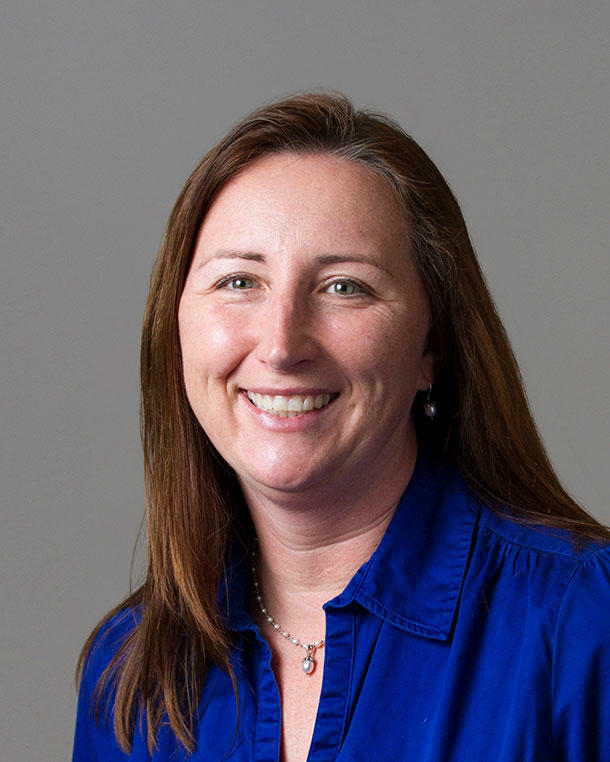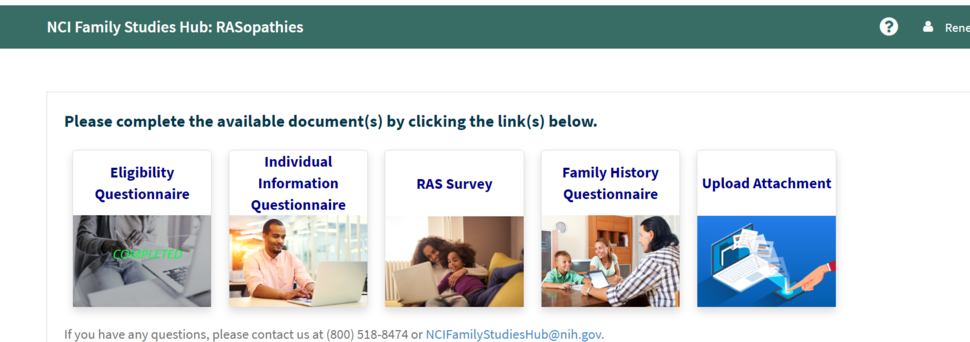Clinical Director’s Corner: New Infrastructure for Family Studies’ Data
, by Sharon Savage, M.D.
Sharon A. Savage, M.D., is the Director of the Clinical Genetics Branch and the DCEG Clinical Director. "Clinical Director's Corner" is a new, recurring feature of Linkage, DCEG's newsletter. It will alternate with updates from Pete Kraft, Ph.D., Director of the Trans-Divisional Research Program, and Jackie Lavigne, Ph.D., M.P.H., Director of the Office of Education.
CHARMS: An Interactive, Patient- and Provider-Facing Platform for Recruitment and Management
Studies of families and individuals at increased risk of cancer have been foundational to DCEG’s mission for more than 50 years. From familial melanoma to Li-Fraumeni syndrome (LFS), investigators in the Clinical Genetics Branch (CGB) have been capturing data detailed clinical and family history on each participant via paper questionnaires that prioritized biospecimen collections, and evaluations at the NIH Clinical Center. Together, this information has illuminated the natural history of these disorders, identified numerous genetic causes of cancer, provided insights for cancer screening and prevention, and informed research efforts on cancer in the general population.
For more than 30 years, this sophisticated research program and its detailed participant records were housed in the once revolutionary and now antiquated study management system called the FAIR (Family And Individual Research) database. Over the past five years, investigators and staff in CGB have partnered with the NCI Center for Biomedical Informatics and Information Technology to replace FAIR with CHARMS—the Communications Hub And Study Management System. In addition to meeting the requirements of contemporary government security standards, CHARMS provides—for the first time—an online, participant-facing enrollment platform and researcher dashboard to speed analysis and accelerate research projects.
In the midst of its construction in 2020, the development team quickly pivoted to create a system to recruit for studies related to the SARS-CoV-2 pandemic. Not only was the module launched in record time, we recruited nearly 1,000 individuals across the country for the NCI-National Human Genome Research Institute-National Institute of Allergy and Infectious Disease collaborative study called COVIDcode. Real-time analytics provided by CHARMS allowed investigators to actively monitor enrollment and allowed us to reach our goal of enrolling a diverse study population, with nearly 30% non-White individuals.
The first CGB study to utilize this new infrastructure and implement a fully web-based enrollment process was the RASopathies Study, launched in July 2021 in collaboration with the NCI Center for Cancer Research. More than 70 RASopathy participants have enrolled via CHARMS, to date.
The Fanconi Anemia Cancer Screening Study is the latest to use the platform and in just four months enrolled more than 50 individuals with this rare cancer-prone disorder. The team is currently adding existing studies, including LFS, familial melanoma, inherited bone marrow failure syndromes, DICER1 syndrome, and others, into the workflow.
Importantly, the invaluable data from more than 230,000 participants enrolled in CGB studies have been migrated into CHARMS. Researchers can create custom dashboards and reports without the need for a programmer. With historic and new participant data integrated into a single platform, CHARMS helps CGB meet the FAIR data principles: family study data are more readily findable and accessible with improved opportunities for interoperability and quality control metrics to aid in reproducibility. The Division’s investment in CHARMS has improved the participant’s experience and ensures a stable and modern infrastructure for family studies data.

